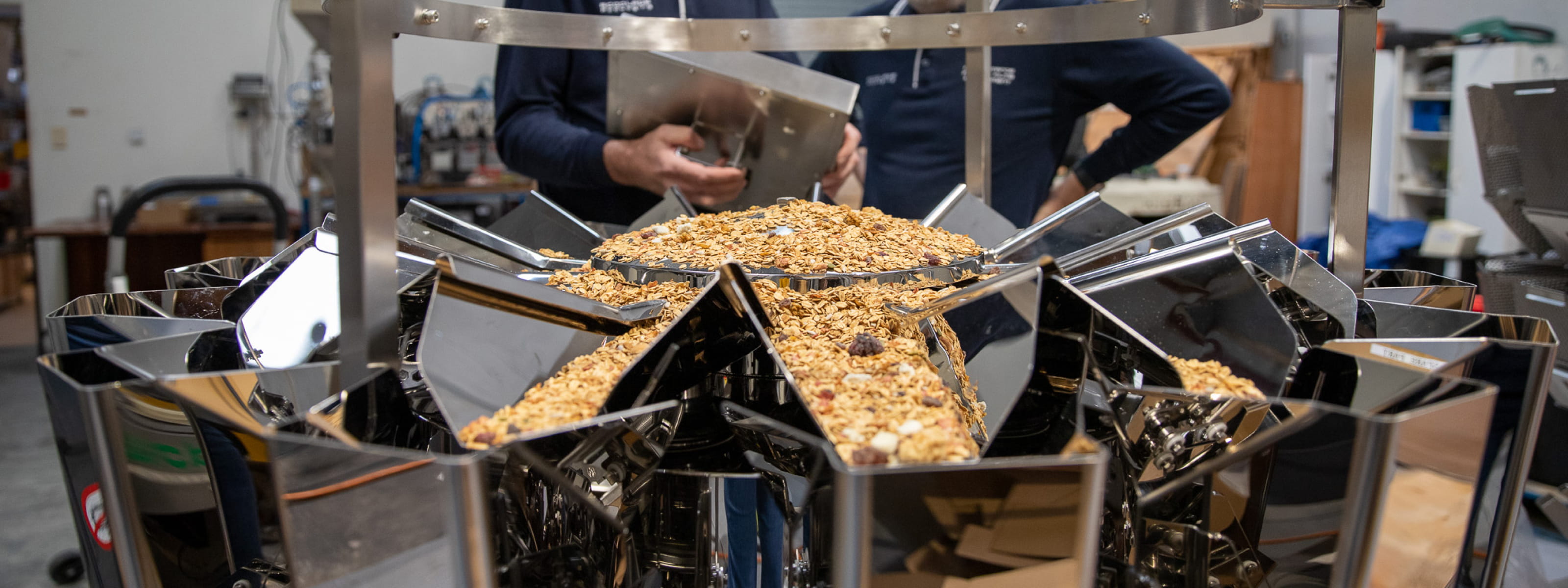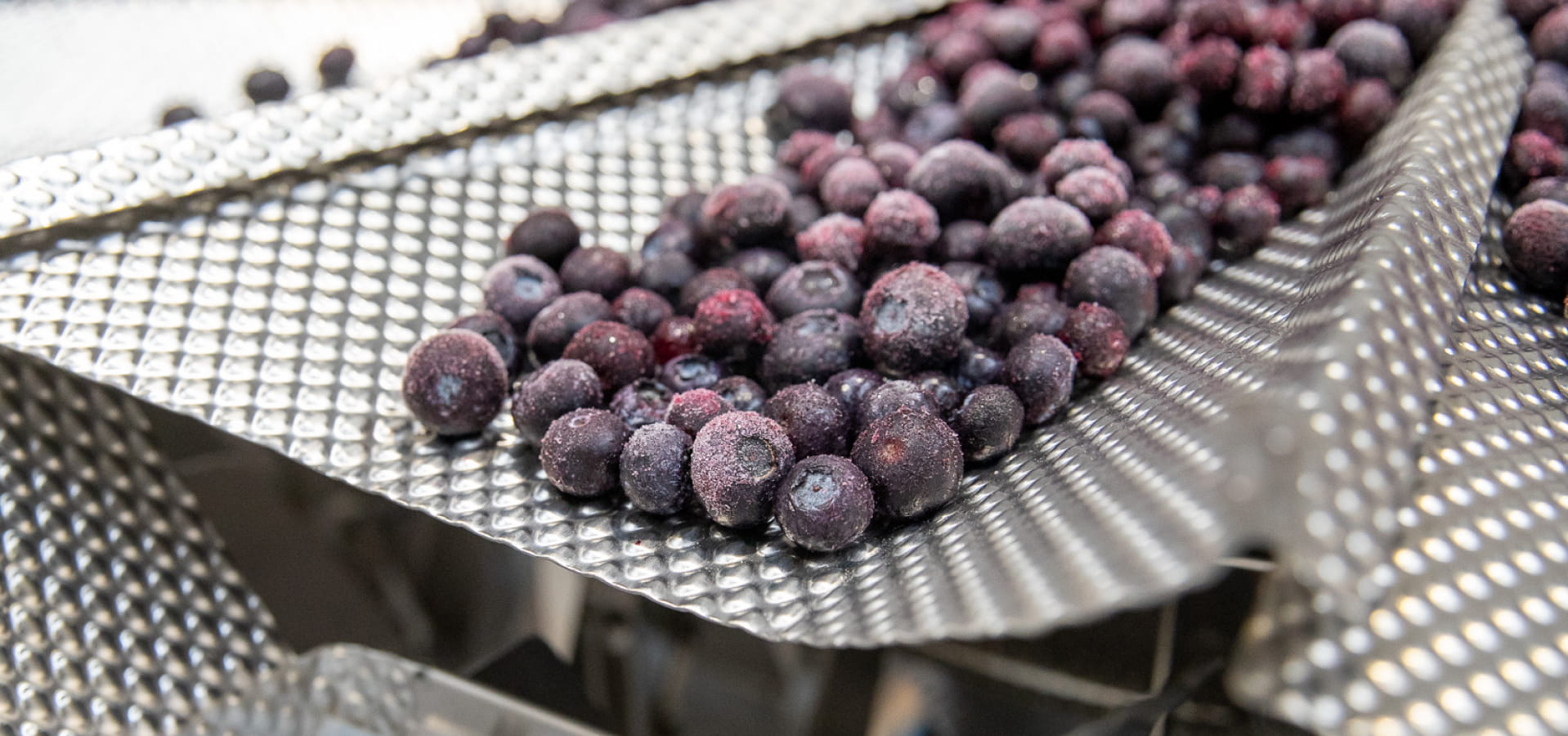New Zealand food producers and packers have access to a vast array of packaging machine options. The type of machine you need will vary depending on your products, packaging materials, and individual business requirements.
We want to make it less confusing and complicated when you start to research your options. In this article, we break down the common types of packaging equipment to give you an overview of all the options.
Form, Fill & Seal Machines
The most common packaging machines our clients use are Form, Fill, and Seal Machines (VFFS). These shape the package, fill them with your products, and securely seal them, streamlining the entire process. They accommodate a wide range of food types, including granules such as herbs or spices, powders like icing sugar, and even solid items like rice or lollies.
“VFFS machines can produce shaped or easy-to-tear open packages. Some can be shaped almost like sachets and others can be much, much larger,” says Don Baxter, Director of Accolade Packaging.
Heat Sealers
Sealers come in all types and are used widely for food packaging. Nearly all of our customers use some form of Heat Sealer, Impulse Sealer, or Band Sealer. Whether you’re sealing bags of chips, vacuum-packing meats, or packaging freshly baked pastries, they ensure your products remain tightly sealed and fresh.
“These are often the lowest cost packaging machines available. Even large companies that have fully automated machines will always have a heat sealer off to the side, so they can produce samples or reseal packs that are being tested,” says Don.
Flow Wrap Machines
Another favourite with our food manufacturing customers is flow wrappers. Ideal when you require fast and individual wrapping of products, these machines are remarkably versatile.
They can accommodate all kinds of food items, ranging from pastries and buns to chocolate bars, and fresh produce, among others. Flow wrappers are a good choice for solid products, ones that are moderately resilient, and uniform in size and shape.
Don explains: “These machines can also produce long shelf life products via gas flushing or modified atmosphere to control the air in the interior of the pack.”
Stick Packs & Sachets
Stick Pack and Sachet Machines are tailored for the production of small, single-serve items. They’re good for businesses manufacturing condiments, sugar, spices, or instant coffee.
“We sell stick pack machines and sachet machines to restaurants, cafes and hotels around New Zealand. Also our airline customers use them, too,” says Don.
Tube & Pouch Filling Machines
When it comes to liquid or semi-solid foods, Tube Filling & Sealing Machines or Pouch Packing & Filling Machines offer a practical way to package them. These industrial food packaging machines efficiently fill and seal your products in user-friendly, convenient packaging. We sell them to customers packing items such as tomato sauce, mayonnaise, yogurt, and even honey.
“Besides food, one of the largest users of our tube and pouch filling machines are cosmetics producers, because they’re ideal for packaging products like creams or lotions,” explains Don.
“Also, these tube and pouch fillers also can work on plastic or metal tubes and often integrate the date coding in the end.”
For a deeper look at packaging machine speeds, this article looks at how many bags a packaging machine can fill per minute.
Weighers
Precision measuring is essential in packaging, and that’s where Multihead and Linear Weighers come in. They guarantee that each package contains precisely the right amount of product.
“The low-cost option is a linear weigher machine, whereas multi heads are much faster, although come with a slightly higher capital cost.”
However, they are tall and take up a fair amount of space. Don explains that the one thing you have to think about before you purchase one is: Do you have enough headspace to fit the multi-head above your machine in your food-grade packaging room?
“But we do have ways around that if businesses find themselves limited for space.”
Safety & Quality Control Equipment
Although often left to the end of the purchasing decision, because they’re at the end of the packing line, these are some of the most critical items for maintaining weight and food hygiene.
To uphold quality standards and safety protocols, equipment such as Package Leak Testers, Checkweighers, and Food Metal Detectors play a crucial role. They enable you to detect and address any issues proactively before your products are dispatched from the factory.
If you’re curious to learn about the different types of food packaging materials, you’ll like this article.
When it comes to food packaging machinery, New Zealand businesses have a lot of options. While all the choices may seem daunting at first, understanding the common types of packaging equipment can simplify the decision-making process. By breaking down these options, we hope we’ve provided some clarity and guidance, so you can select the right machine for your needs. Our experienced team is also available to provide personalised advice for your business.

